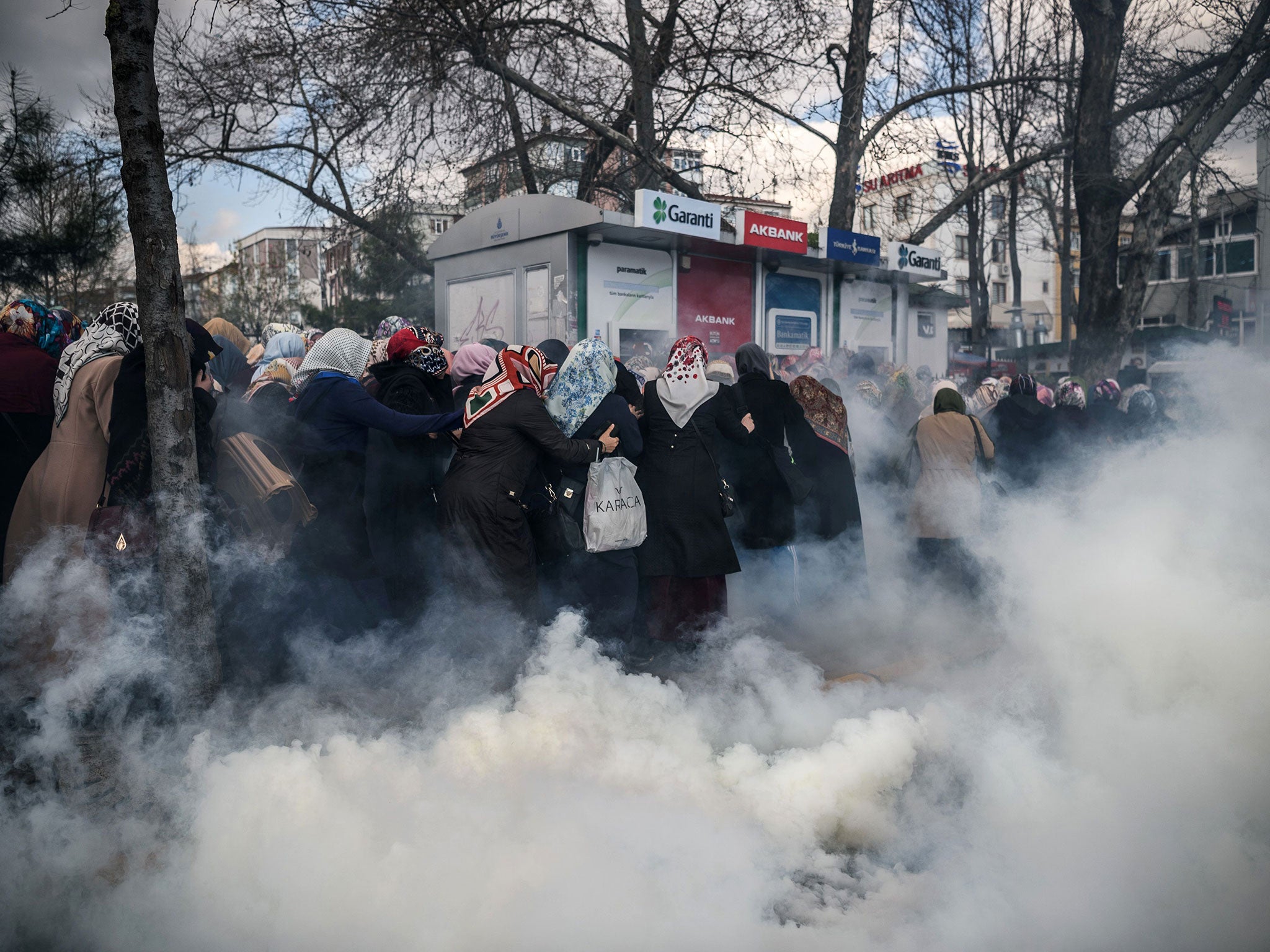The EU is ignoring civil liberties attacks in Turkey – and for what?
EU leaders may find that they have held their noses to strike a deal with Turkey that doesn’t even work

As the EU’s top official arrived in Istanbul on 4 March to lay the ground for the migration summit on 7 March, Turkish authorities were busy seizing control of the country’s best-selling newspaper.
Brussels had already made clear that it was willing to turn a blind-eye to concerns about growing authoritarianism in Turkey in return for its help in stemming the flow of people to Europe. But the timing of the takeover at Zaman media group could not have been more embarrassing.
Shortly after Donald Tusk, the head of the European Council, shook hands with President Recep Tayyip Erdogan, protesters outside the Zaman offices were blasted with tear gas. Journalists said that they were prisoners in their own newsroom after police set up camp in the building.
The paper is closely linked to an Islamic cleric who was once the government’s ally but is now a foe accused of plotting a coup. Turkey has insisted that the takeover was a judicial decision backed by a court order, not a political one.
That is hard to take seriously after seeing the edition on 6 March. Having in recent years become one of Turkey’s most critical news outlets, it suddenly performed a 180-degree turn. The front page was one giant puff for the government, with “stories” about the President visiting a new bridge and hosting a reception for women. It would be funny were it not so dark.
The seizure is the latest in a series of assaults not just on the media but also on the judiciary, academia and civil society. Once held up as a model Muslim democracy, the ruling Justice and Development Party (AKP) is now increasingly seen in Western capitals as a runaway train.
There has been little pushback, however, from leaders in Brussels, Berlin and Paris. They fear that the migration crisis poses an existential threat to EU freedom of movement – and have hit upon Turkey as the solution.
Ankara is well aware of its power. A leaked memo of a previous meeting between Brussels officials and President Erdogan revealed that they held back a critical EU report until after an important election. When the European Commission president Jean-Claude Juncker protested that Mr Erdogan was being treated “as a prince”, he shot back that he expected nothing less. So it is not surprising to learn that, following the torrid events at Zaman, the EU issued the mildest of rebukes.
For all its kowtowing, it is not even clear that Europe’s deal with Turkey will succeed in avoiding a repeat of last year’s tide of arrivals in Europe. Turkey is already home to three million refugees. Many are determined to head to Greece and are willing to take the financial and personal risks needed to get there.
EU officials believe that Ankara has come round to the idea of accepting migrants turned away from Europe – a move aimed at deterring others from even trying. But Turkey has said that it will be impossible to completely halt the tide. Its foreign ministry warned last week: “There’s no magic wand in our hands.”
While the migrant crisis is the number one concern for Europe, Turkey is facing a series of other challenges that take precedence over easing Angela Merkel’s domestic political woes.
It is fighting a messy war against the Kurdistan Workers’ Party that last month spilled on to Ankara’s streets with a deadly attack on convoy of military buses. It is reeling from a series of Isis suicide bombings and panicking at gains by foes in northern Syria.
Ultimately, EU leaders may find that they have held their noses to strike a deal with Turkey that doesn’t even work.





Join our commenting forum
Join thought-provoking conversations, follow other Independent readers and see their replies